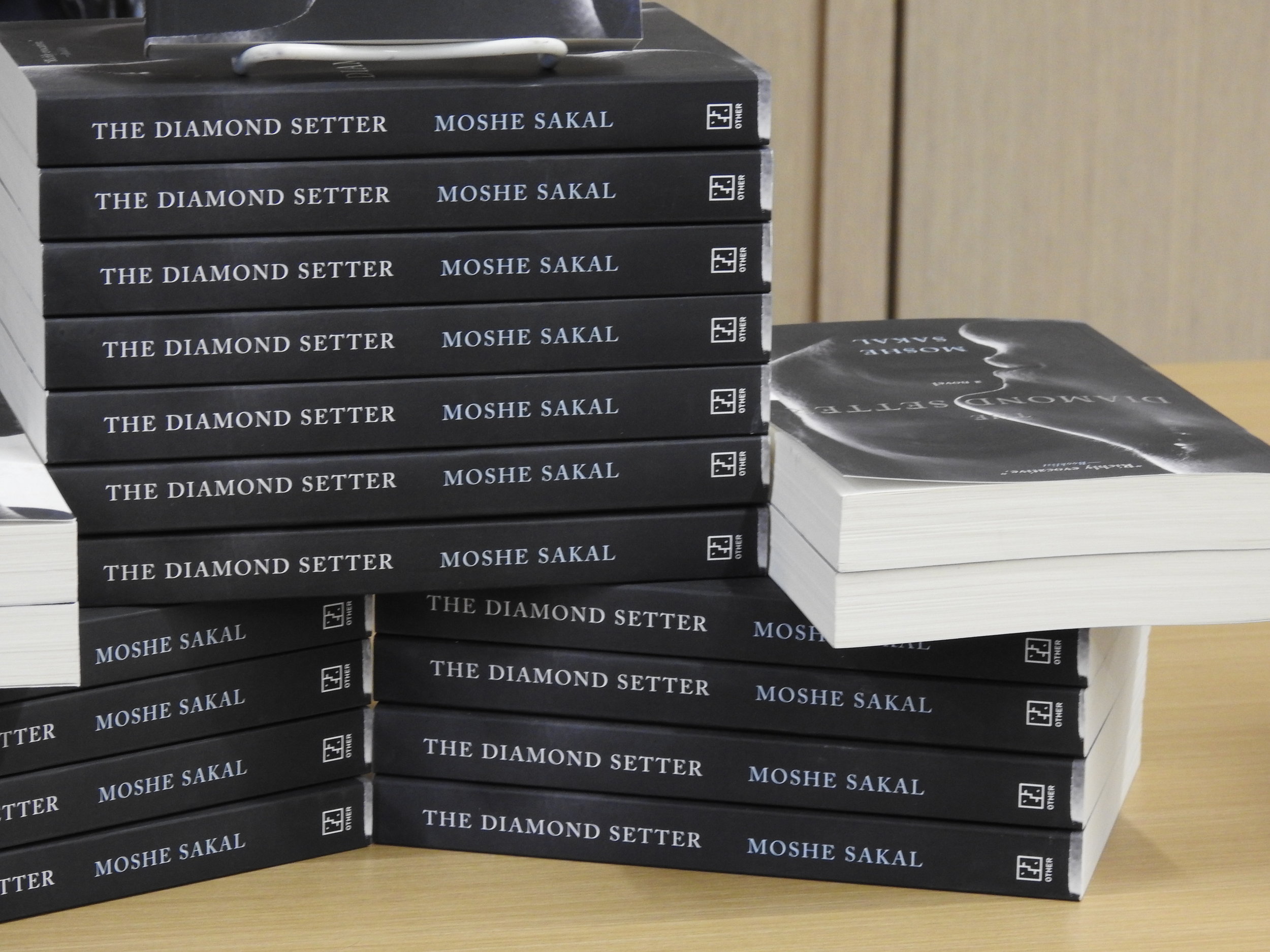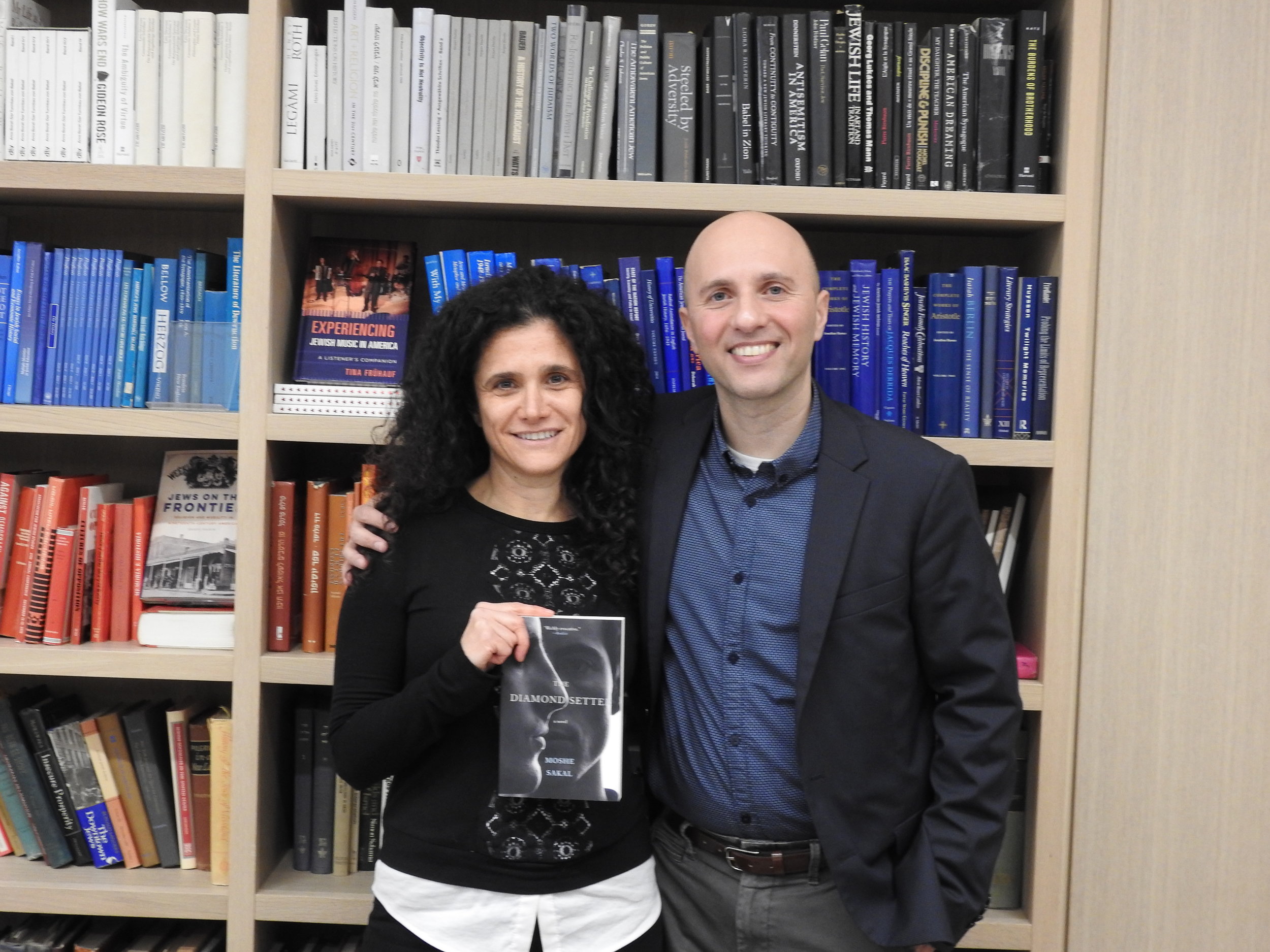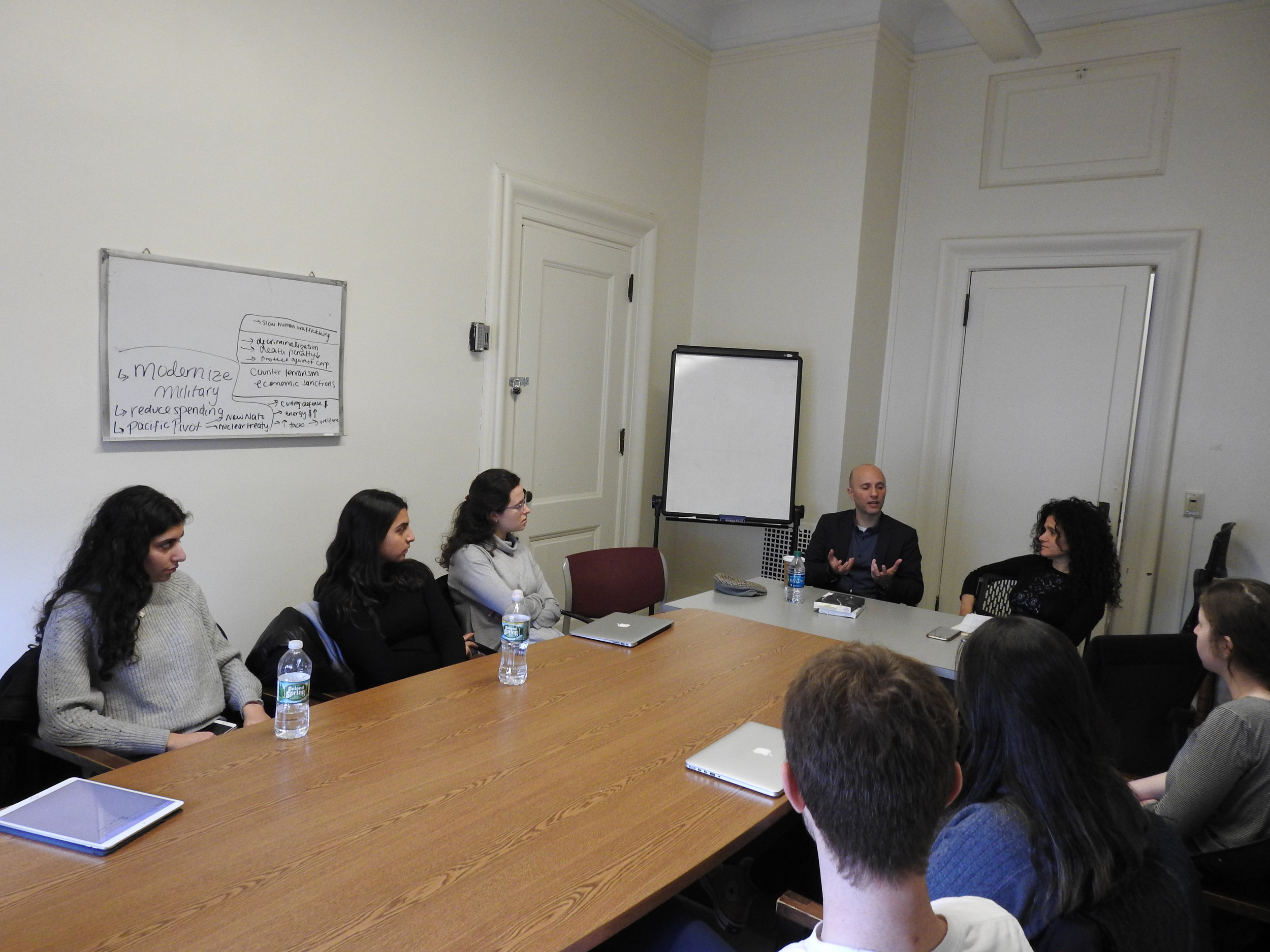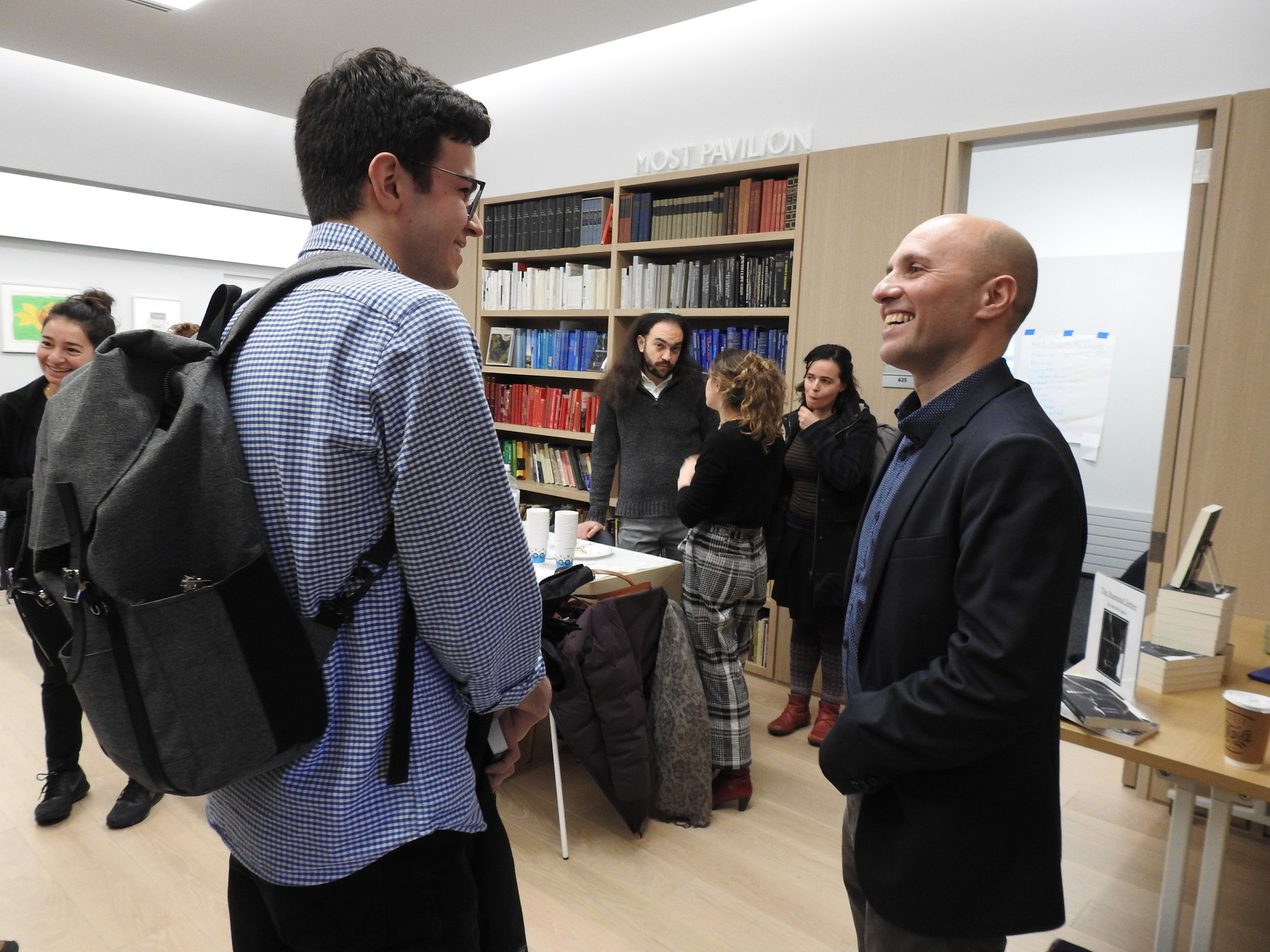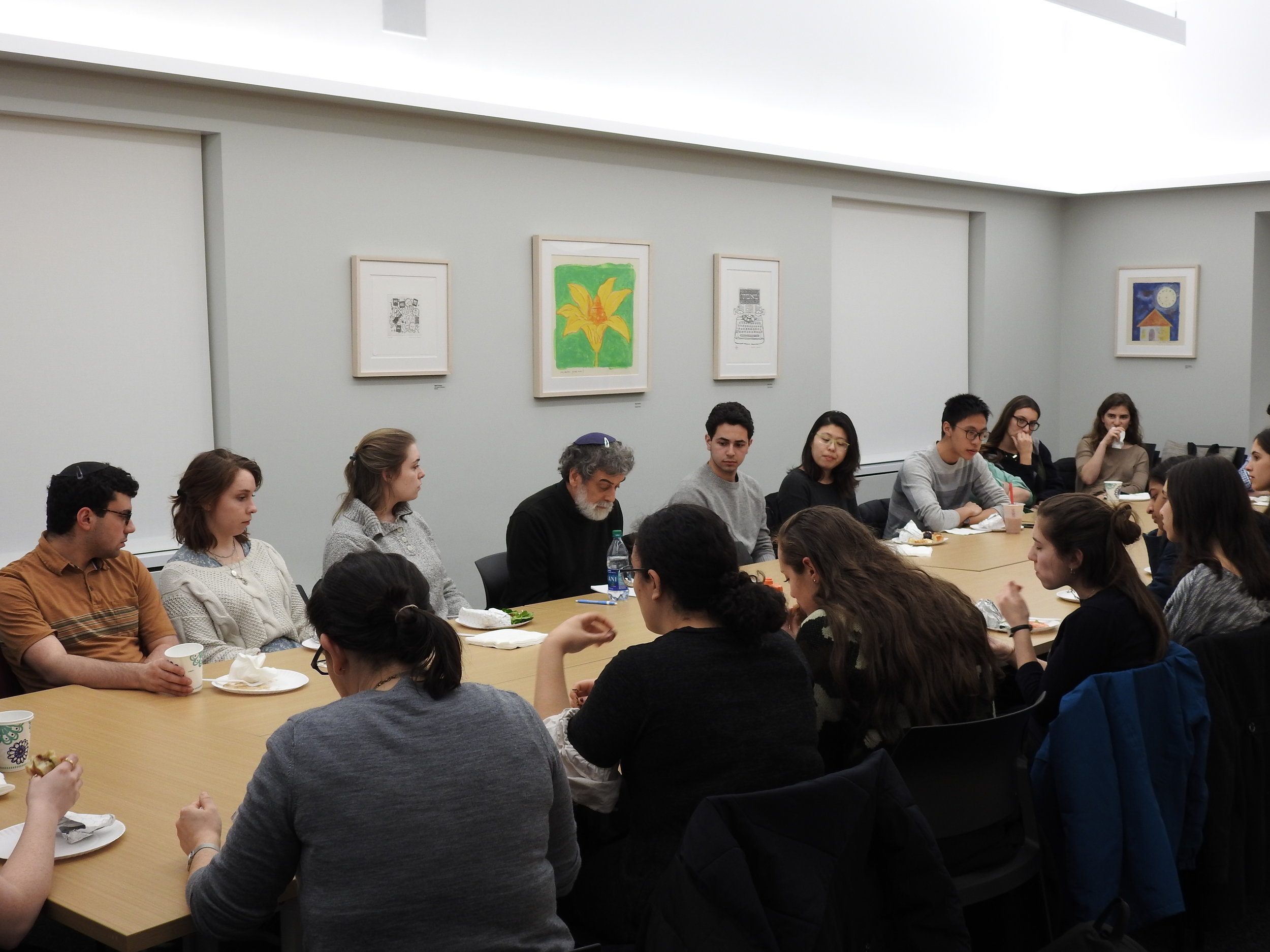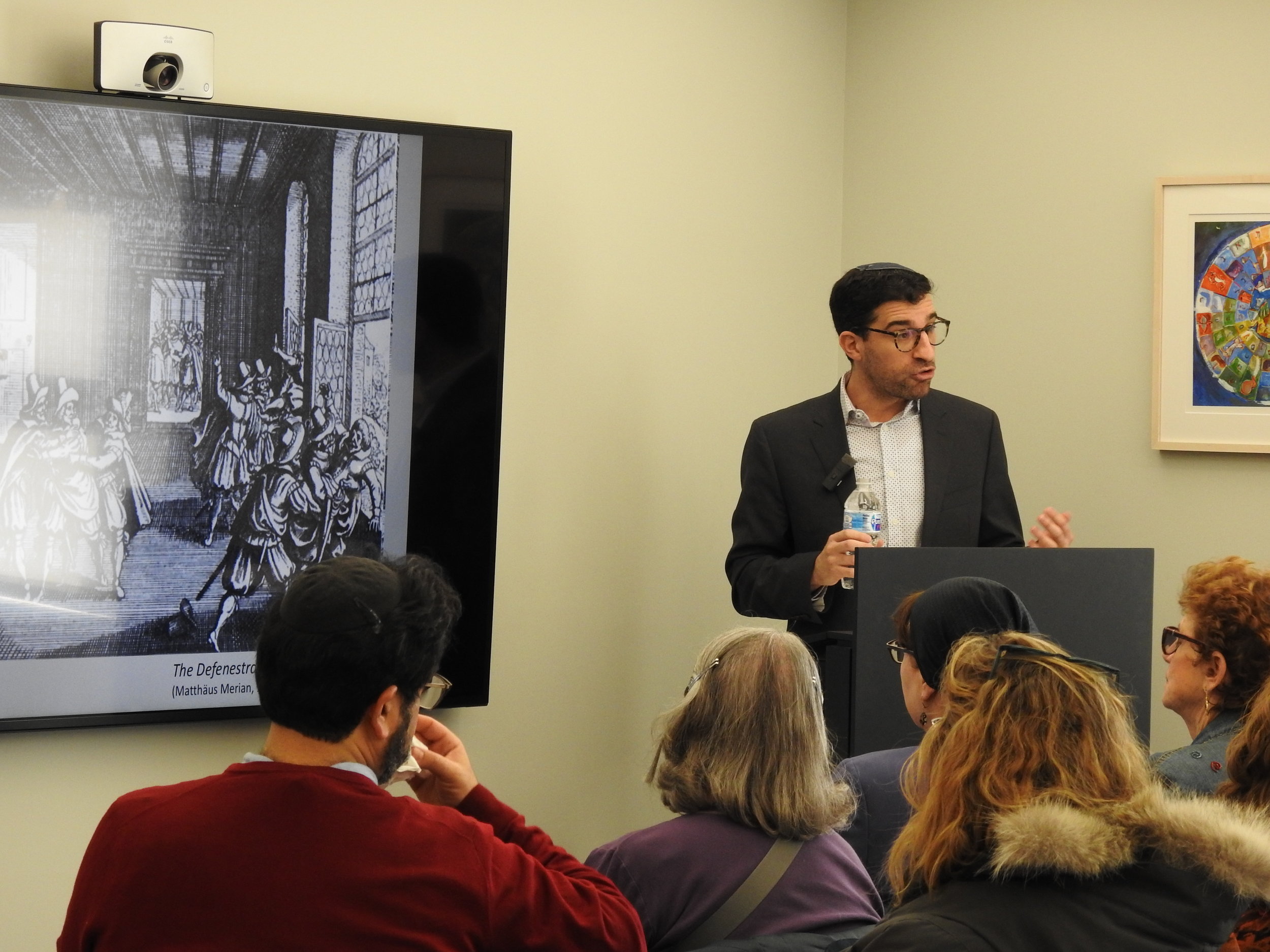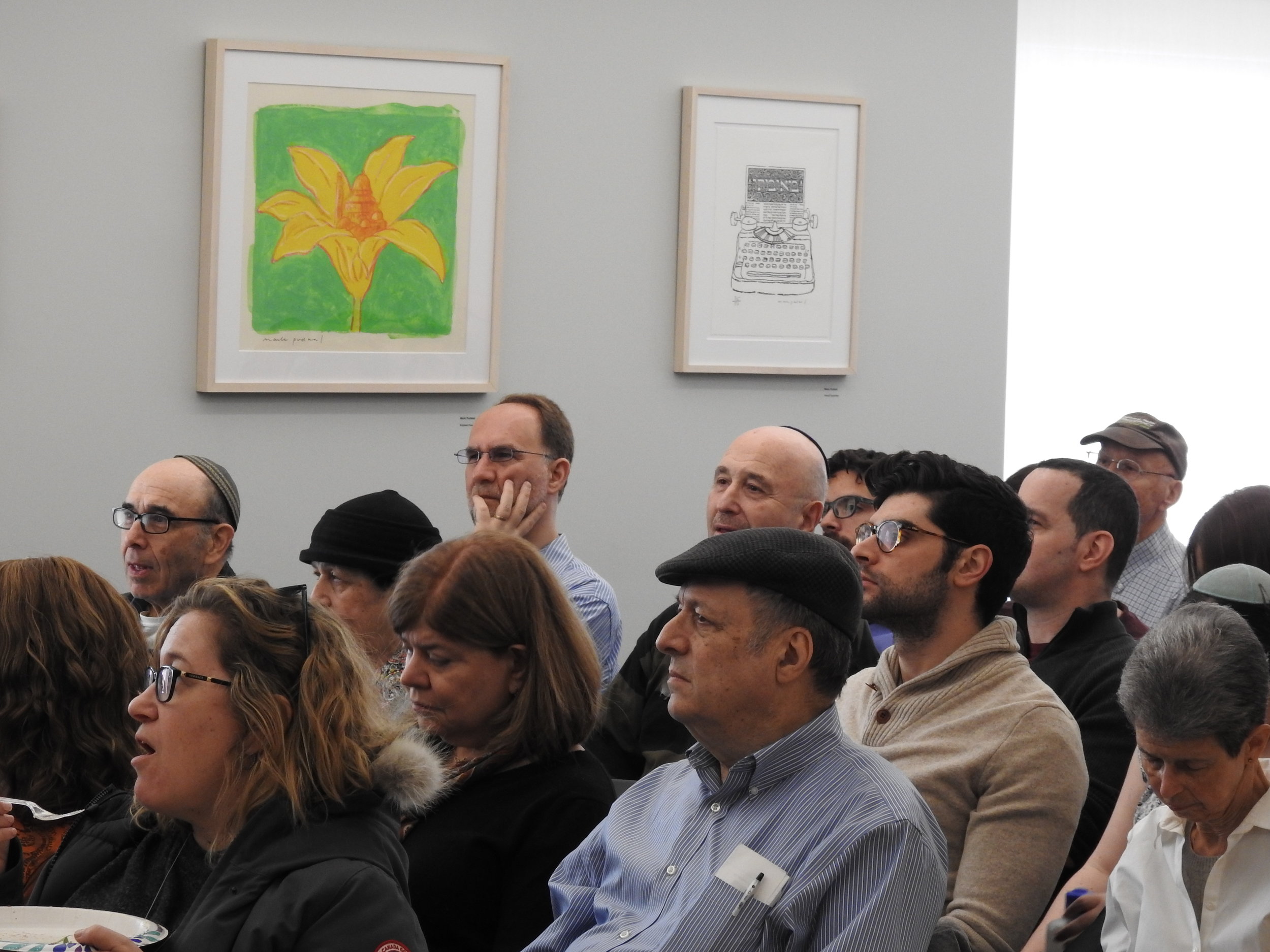Michelle Chesner, the Norman E. Alexander Jewish Studies Librarian, shared Purim related literature, including scrolls and parodies in Italian, Judeo-Greek, and Hebrew.
Winter 2019 News
Want to learn more about our students, work, and public events? Read our latest Winter 2019 Magazine and explore Israel and Jewish Studies at Columbia.
Spring@IIJS: In Dialogue: Jewish Polish Relations during The Second World War, Part III
On February 21, over 215 people joined us for a conversation on Polish-Jewish relations during WWII. This lecture was part of series of four events, jointly organized by the Jewish Studies Program at Fordham University, the Institute for Israel and Jewish Studies at Columbia University, and the YIVO Institute for Jewish Research, meant to explore the complex history of Poland, with its shifting borders, focusing in on a shared, but much misunderstood, past of Polish Jews and Christians. The fourth and final event will take place on Sunday, May 5 at YIVO Institute for Jewish Research. More details here.
Faculty in the News: Why Is This Luxury Developer Building ‘Kosher’ Condos On The Upper West Side?
Rebecca Kobrin puts a new ‘Kosher’ Condo development into historical context in The Forward.
Spring@IIJS: The Diamond Setter with Moshe Sakal
On Monday, February 18, the Institute hosted author Moshe Sakal as part of our Israeli Author Series. Sakal discussed his latest book, The Diamond Setter, with a sold-out crowd. He described how he wanted to tell a story “of the Middle East, not the story of the Middle East” and explored various boundaries and borders, both physical and psychological, within this book. Sakal described the feeling of having multiple homelands and the idea of “carrying [his] diaspora in [his] suitcase.”
Before the lecture, 11 students from Naama Harel’s Readings in Hebrew Texts class discussed various themes from the book in Hebrew.
A Day at the Institute: Heidegger and the Jews and Undergraduate Israel Fellows Conversation
This past Wednesday, the Institute welcomed members of the public and current students to engage in conversations ranging from Heidegger and the Jews and identity politics in Israel and America.
During our sold-out lunchtime public lecture, Daniel Herskowitz (Rabin-Shvidler Postdoctoral Fellow), shared his research on Heidegger and his relationship with Jewish philosophers, and how Jewish philosophers later reflected on his actions and work. The result was a stimulating conversation on the curious case of Heidegger that slowly reveals itself over time.
In the evening, 25 Undergraduate Israel Fellows kicked off a conversation series for Fellows with Gershom Gorenberg (Knapp Adjunct Senior Research Scholar and Adjunct Professor of Journalism.) Students discussed how Jews are perceived and perceive themselves in Israel and America and on whether Jews are an ethnicity, religion, race, culture…
And the conversation continues. Join us at future public events, and learn more about the Undergraduate Israel Fellowship.
Spring@IIJS: Prince of the Press: How One Collector Built History’s Most Enduring and Remarkable Jewish Library
We kicked off our Spring events series with Prince of the Press by Joshua Teplitsky. Highlights include heartless chickens, cows in the margins, and chief rabbi of Prague's, David Oppenheim (1664–1736), monumental book collection.
The story of one of the largest collections of Jewish books, and the man who used his collection to cultivate power, prestige, and political influence.
David Oppenheim (1664–1736), chief rabbi of Prague in the early eighteenth century, built an unparalleled collection of Jewish books, all of which have survived and are housed in the Bodleian Library of Oxford. His remarkable collection testifies to the myriad connections Jews maintained with each other across political borders. Oppenheim’s world reached the great courts of European nobility, and his family ties brought him into networks of power, prestige, and opportunity that extended from Amsterdam to the Ottoman Empire. His impressive library functioned as a unique source of personal authority that gained him fame throughout Jewish society and beyond. His story brings together culture, commerce, and politics, all filtered through this extraordinary collection. Based on the careful reconstruction of an archive that is still visited by scholars today, Joshua Teplitsky’s book offers a window into the social life of books in early modern Europe.
Hear from Joshua Teplitsky on what has been described as "an intellectual feast for historians and an indispensable treasure for book lovers of all kinds."
Supported by the generosity of the Kaye Family
Joshua Teplitsky is assistant professor of history at Stony Brook University. He specializes in the history of the Jews in Europe in the early modern period and in the study of books and media. He lives in New York City.
Faculty in the News: ‘Take my donkey, please…’
Read about Prof. Jeremy Dauber’s book, “Jewish Comedy: A Serious History,” which is now out in paperback, in the Jewish Standard.
The Semester of the Jewish book
Read about the teaching collaboration between Prof. Elisheva Carlebach and Norman E. Alexander Jewish Studies Librarian Michelle Chesner. Read more here.
Faculty in the News: The Real History Behind The Marvelous Mrs. Maisel’s Trip to the Catskills ‘Borscht Belt’
TIME spoke to Jeremy Dauber, a professor of Yiddish Language, Literature and Culture at Columbia University and author of Jewish Comedy: A Serious History, about the true story behind Mrs. Maisel‘s summer vacation. Read more at TIME.com.
Faculty in the News: Ocasio-Cortez and Graham's immigration debate missed this key lesson
CNN.com published an opinion piece by Prof. Rebecca Kobrin on the legacy of the Kindertransport.




